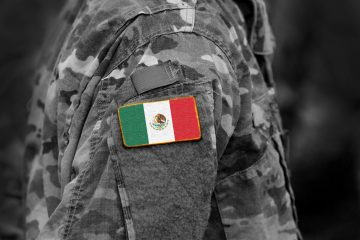
AMLO’s National Guard: More of the Same?
Mexico’s new national guard has been in the news recently because it plays a critical role stemming the flow of Central American migrants. However, it remains “a work in progress,” and has been the subject of severe criticism since its inception. Despite making promises to demilitarize Mexico during his campaign, President Andrés Manuel López Obrador is going forward with continuing to rely on militarized public security under a different name. The Plan Nacional de Paz y Seguridad 2018-2024 – his plan to bring about ‘peace and security,’ entails the creation of a Guardia Nacional (national guard). Of course, improving public security is of vital importance, because the security situation in Mexico is dire: Last year set a new record for …

WILL HISTORY REPEAT ITSELF WITH PRESIDENT TRUMP’S TRADE WAR WITH CHINA?
The iconic statue of the first American postmaster general Benjamin Franklin greets visitors to the Old Post Office Pavilion in the heart of the US capital: Washington, DC. The edifice is now home to the luxurious and controversial Trump International Hotel on Pennsylvania Avenue at the mid-point between the US Capitol Building and the White House. The hotel webpage invites guests to “share tea” in the Benjamin Bar to discuss “social and economic affairs” as it was the “‘established custom’” in colonial America. It further states that “we agree with Franklin” and delight to “serve tea from China.” The page indicates that Franklin had stated “‘at least a million Americans drink tea twice a day,’” Yet, he was “unable to …
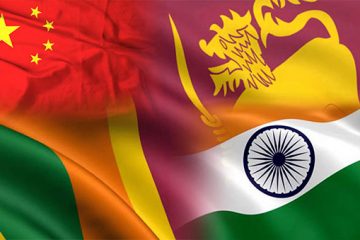
Caught in Indo-Chinese Crosswinds? Charting a Pragmatic Foreign Policy for Sri Lanka
Competition is a natural by-product of major powers navigating an anarchic world. Small states face a dilemma, when caught in the middle between two rivaling major powers. Sri Lanka in particular, has captured international attention as a key battleground between Beijing and New Delhi in their tussle for influence in South Asia. Whilst some scholars argue that the island is a personification of China’s ‘debt trap diplomacy,’ others contend that China’s influence should not be exaggerated, as Chinese lending amounts to less than 15% of Sri Lanka’s total external debt. Concerns over Sri Lanka’s sovereignty have been rife following the US $ 1.12 billion debt-to-equity swap of the Hambantota Port Agreement and the proposed lease of the Mattala International Airport …

Confronting Mexico’s New Black Market in Fuel Theft and Trafficking
Inaction in politics can be comfortable. Politicians might opt for hand wringing to avoid confronting the consequences of their actions, or, in the worst-case, to hide their own complicity. Mexico´s new administration has been in the headlines recently for doing just the opposite: On December 27th of last year, president Andrés Manuel López Obrador announced that his government would confront the large-scale theft of fuel that affects Petróleos Mexicanos (PEMEX). Since then, there have been widespread news of lines and fuel shortages. The situation escalated further on January 18 with the horrific news of 73 people killed and another 76 gravely injured from the explosion of a fuel pipeline in the state of Hidalgo. Mexico´s New Black Market What the …

Japan’s aircraft carriers and the balance of naval capabilities in Asia
After much speculation about the future of the Japanese Navy, it was announced in early December that the Izumo-class helicopter carriers will be converted to aircraft carriers. This will require a substantial reconstruction of the two ships as well as the purchase of F‑35B fighter jets to comprise the carriers’ airwings. It is likely that 100 additional F-35 aircraft will be ordered to further bulk up Japanese aerial capabilities. This change is important for three reasons, firstly, Japan has not operated aircraft carriers since World War Two, secondly, they are being commissioned to contest increasing Chinese control of the northwest Pacific, and thirdly, because aircraft carriers are also under construction in the United States, Britain, China and India. We appear …
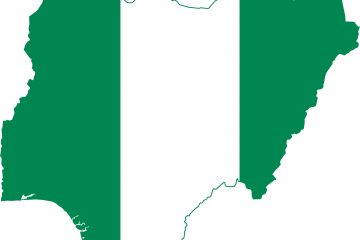
The Need for Restructuring Nigeria’s Political System
Nigeria is Africa’s biggest economy and the most populous black nation on earth. Yet, regional economic inequality and the lopsidedness of Nigeria’s political system have led to a series of protracted conflicts. The country is currently embroiled in crises similar to the tumultuous time after independence in 1960, when regional and ethnic tensions erupted in a vicious power struggle. Back then, following a coup against the northern-led government in January 1966, thousands of Igbos living in the northern region were forced to flee to their homeland following the outbreak ethnic clashes. In 1967, Odumegwu Ojukwu, an Igbo military officer, proclaimed the independence of Republic of Biafra, leading to Nigeria’s first bloody civil war, which ended in 1970. Over forty years …
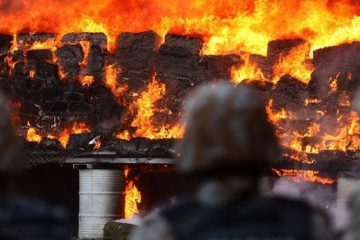
The War on Drugs’ Corroding Effect on Mexican Democracy
If it is part and parcel for democracies to (1) protect individual rights, (2) safeguard its citizenship from serious abuses of power, and (3) produce fair and reasonable laws which are impartially enforced, then we can assert that the misnamed “war on drugs” severely corrodes Mexican democracy. In general, the “war on drugs” is a punitive strategy which aims to increase drug prices and punish consumers, under the assumption that attacking supply can create a world without drugs. In Mexico, what is referred to as the “war on drugs” escalated in 2006, when then-president Felipe Calderón started “a frontal war against organized crime”, allegedly, to “keep drugs from reaching our children”. Calderón did so right after a highly competitive election …
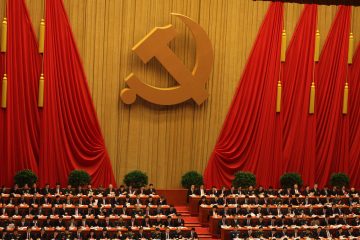
Homeland Calling: The Chinese Diaspora and Beijing’s Worrying Embrace of Ethnic Nationalism
Recent years have seen a global resurgence of ethnic nationalism. Yet, political identities based on ethnicity are nothing new. In fact, ethno-nationalist desires reshaped Europe’s borders in the early 20th century with devastating consequences. Despite more than seven decades of relative peace, largely kept in place by the multilateral organizations and deepening global integration, nationalism appears to be returning to the forefront of politics once more. In Europe, politicians and political parties are tapping on anti-immigrant nationalist sentiment. For instance, Italy’s Matteo Salvini has openly advocated solutions which involve marginalizing ethnically-defined “others”. Rogers Brubaker, professor of sociology at UCLA, has coined the term “civilizationism” to describe the rhetoric used by multiple European political parties which claims that the ethno-cultural homogeneity …









